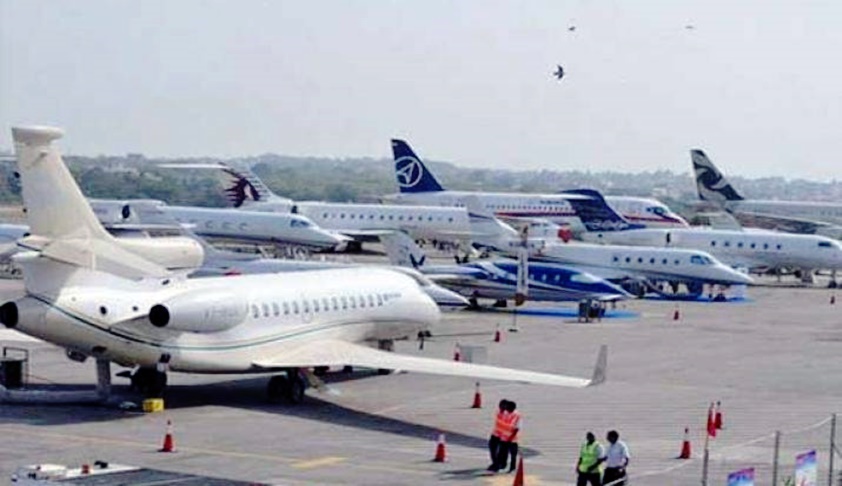Overbooking: Are Airlines Biting More Than They Can Chew?
Ashish Virmani
18 Feb 2018 10:57 AM IST

In a video which went viral April last year, the world watched with horror the plight of an innocent passenger who was forcefully dragged out of a United Airlines aircraft on account of being ‘denied boarding’ by the airline. The incident brought into focus the policy of overbooking followed by airlines. Overbooking is the (mal)practice of airlines to book confirmed seats, more than the number of seats available on an aircraft. In such a case, although a passenger holding a confirmed ticket has presented himself/herself for boarding within the time specified by the airline, he/she may be refused boarding on account of overbooking of confirmed seats.
In the 7-month period between August 2016 and February 2017, 12,957 passengers on domestic Indian flights were not allowed to board their flights – a 65.75% increase compared to the same period a year earlier.[1] This figure stood at 2,879 passengers, who were denied boarding in December 2017 alone.[2] Often airlines even close their check-in counters early in order to avoid reporting incidents of ‘denied boarding’. In the absence of regulation, airlines continue to overbook flights while the authorities turn a blind eye to the (mal)practice.
Recently, the Delhi High Court in the matter of Pallav Mongia v. Union of India was called upon to consider whether the policy of ‘overbooking’ being followed by Airlines was legally permissible. The Government argued that that overbooking was a practice being followed by airlines internationally. It was also contended that the Government had issued its regulations under the Aircraft Act, 1934 and the Convention on International Civil Aviation, 1944 (‘Chicago Convention’).
However, the Petitioners countered by arguing that the Chicago Convention or the Aircraft Act, 1934 actually do not govern carriage of passengers by air. Rather, it is the Convention for the Unification of Certain Rules for International Carriage by Air (‘Montreal Convention’) read with the Carriage by Air Act, 1972 which are applicable. And in fact, no provision under the Montreal Convention or the Carriage by Air Act, 1972 either implicitly or explicitly permits airlines to overbook flights. It was thus argued that in terms of the Carriage by Air Act and the Montreal Convention, the DGCA would not have any power to permit overbooking, either explicitly or implicitly.
Moreover, the fact that a practice is followed internationally but without any backing in law cannot be sustained as an argument to validate such a practice. Even internationally, various jurisdictions are contemplating a legislation to outlaw overbooking or provide for steep compensation if passengers are denied boarding.
Even the Railways overbooks in order to minimize the effect of no shows. However, in all such cases, a traveller is made aware in advance that his ticket is either in the waitlist or confirmed. This is completely different from the deceptive practice of airlines to represent to all passengers that their ticket is confirmed, only to ‘bump off’ passengers holding confirmed tickets.
While deciding the issue, the Delhi High Court in its judgment dated 2nd February 2018 came down heavily on the practice of overbooking being carried on by airlines. The Court clarified in no uncertain terms that the regulations of the DGCA providing for compensation in case of overbooking, cannot be interpreted to permit the airlines to adopt such practices. In fact, during the course of the proceedings, even the airline concerned (Air India) admitted that such a practice of overbooking amounted to deficiency in service. This had also been recognized by a string of earlier decisions of the National Consumer Disputes Redressal Commission and other consumer forums.
Ultimately, the Court held that a passenger aggrieved by the action of an airline in denying a passenger boarding can approach civil and consumer courts to claim damages, in addition to the minimum damages prescribed under the DGCA regulations. As per latest DGCA regulations, in case an airline arranges an alternate flight that is scheduled to depart within the 24 hours of the booked scheduled departure, an amount equal to 200% of booked one-way basic fare plus airline fuel charge, subject to maximum of INR 10,000, is payable to a passenger by the offending airline.
In light of the Delhi High Court’s categorical ruling, it is high time that the Government of India and the Ministry of Civil Aviation wakes up to the plight of hapless passengers who are denied boarding despite holding confirmed tickets. It is neither feasible nor desirable for each passenger who has been denied boarding to individually approach Courts to seek redressal. Despite this pro-passenger judgment, there is still no redressal for the numerous unreported cases where airlines conveniently close check-in counters early, simply as a means to facilitate the unfair ‘denied boarding’ practice.
The issue of overbooking needs to be urgently redressed. Countries across the world, including India, ought to take proactive steps to penalize airlines which unfairly gain from such malpractices.
[1] http://www.thehindu.com/business/Industry/overbooked-flights-in-india-on-the-rise/article17956660.ece
[2] http://dgca.nic.in/reports/Traffic-ind.htm
Ashish Virmani is an advocate practicing in the Supreme Court. Mr Ashish Virmani appeared for the petitioner in the petition filed by Mr Pallav Mongia, Advocate challenging the practice of overbooking.
[The opinions expressed in this article are the personal opinions of the author. The facts and opinions appearing in the article do not reflect the views of LiveLaw and LiveLaw does not assume any responsibility or liability for the same]


